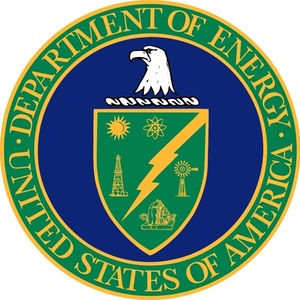DOE awards $34 million to 11 MSW, algae feedstock projects

August 3, 2021
BY Erin Krueger
The U.S. Department of Energy on Aug. 3 awarded nearly $34 million to 11 projects that will support research and development to improve and produce algae and municipal solid waste (MSW) feedstocks for the production of biofuels, biopower and bioproducts.
The agency said transportation currently accounts for approximately 30 percent of total U.S. energy consumption and generates the largest share of the country’s greenhouse gas (GHG) emissions. Biofuels can lower GHG emissions and will play an important role in reaching the Biden administration’s goal of reaching net-zero emissions by 2050, according to the DOE.
“From food waste to yard trimmings, biomass technology is converting our everyday trash into low-carbon fuel for planes and ships while cutting costs and supporting our critical transportation sector,” said Secretary of Energy Jennifer Granholm. “The companies and universities leading these projects will ensure that our cutting-edge biofuel technologies reduce carbon emissions, create new jobs up and down the supply chain, and are made in America by American workers.”
Approximately $15 million will go to five projects focused on MSW. The remaining $18.7 million will support six algae projects.
MSW projects include:
Cascadian Consulting Group: $3.13 million to support a statistically rigorous deep dive, nationwide characterization of MSW and related characterization of technologies that enable the production of conversion-ready feedstocks.
Advertisement
Advertisement
University of Maryland—College Park: $3.14 million to support the systematic characterization of variability in MSW streams to identify critical material attributes for fuel production.
Lehigh University: $2.81 million to support an integrated LIBS-Raman-AI system for real-time, in-situ chemical analysis of MSW streams.
North Carolina State University: $2.84 million for AI-enabled hyperspectral imaging augmented with multi-sensory information for rapid and real-time analysis of non-recyclable heterogeneous MSW for conversion to energy
AMP Robotics: $2.81 million for an artificial neural network for MSW contamination characterization.
Algae projects include:
University of California—San Diego: $3.2 million for the enhanced production of algae lipids and carbohydrates for fuel and polyurethane precursors.
Advertisement
Advertisement
Colorado State University: $3.2 million to support advancing algal productivity through innovation in cultivation operation and strain traits.
Scripps Institution of Oceanography at UC San Diego: $2.76 million to support ecological monitoring technologies to enhance large-scale microalgae cultivation, stability and productivity.
Arizona State University: $3.2 million for direct air capture integration with algae carbon biocatalysis.
Global Algae Innovations Inc.: $3.2 million to support enhanced algae productivity in carbon dioxide direct air capture cultivation.
University of Toledo: $3.2 million to support minimizing organic carbon losses to improve net productivity in direct air capture cultivation.
Related Stories
The USDA significantly increased its estimate for 2025-’26 soybean oil use in biofuel production in its latest World Agricultural Supply and Demand Estimates report, released July 11. The outlook for soybean production was revised down.
U.S. fuel ethanol capacity fell slightly in April, while biodiesel and renewable diesel capacity held steady, according to data released by the U.S. EIA on June 30. Feedstock consumption was down when compared to the previous month.
The U.S. EPA on July 8 hosted virtual public hearing to gather input on the agency’s recently released proposed rule to set 2026 and 2027 RFS RVOs. Members of the biofuel industry were among those to offer testimony during the event.
The USDA’s Risk Management Agency is implementing multiple changes to the Camelina pilot insurance program for the 2026 and succeeding crop years. The changes will expand coverage options and provide greater flexibility for producers.
President Trump on July 4 signed the “One Big Beautiful Bill Act.” The legislation extends and updates the 45Z credit and revives a tax credit benefiting small biodiesel producers but repeals several other bioenergy-related tax incentives.
Upcoming Events










